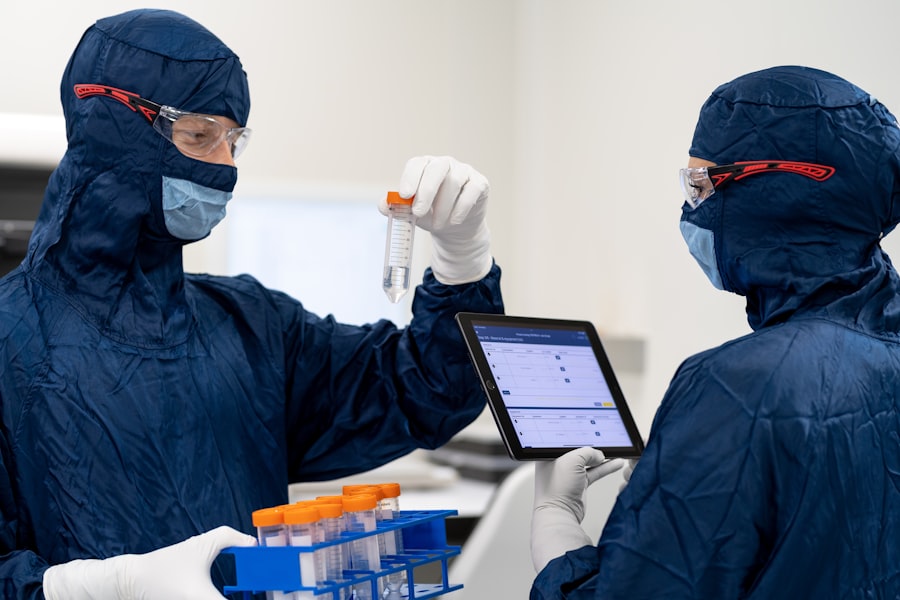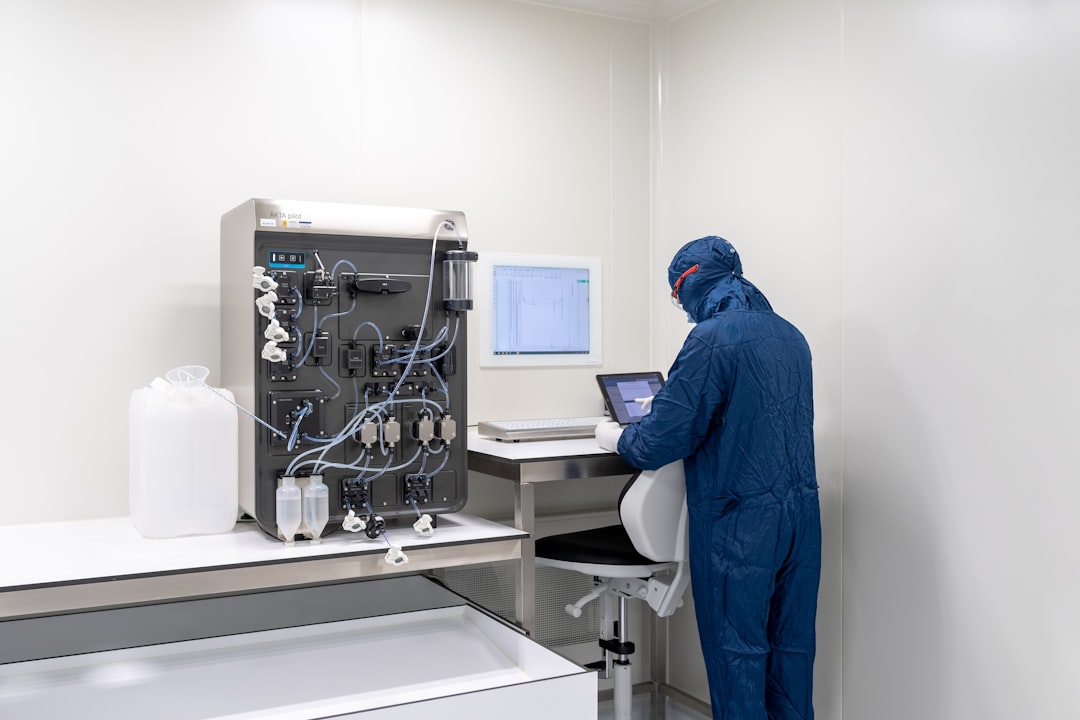The landscape of drug development is undergoing a seismic shift, driven by the integration of artificial intelligence (AI) technologies.
However, with the advent of AI, researchers are now equipped with powerful tools that can streamline various stages of drug development, from initial discovery to clinical trials.
This transformation is not merely a trend; it represents a fundamental change in how we approach the creation of new therapies, promising to enhance efficiency and efficacy in ways previously thought impossible. AI-based drug development leverages vast amounts of data, including genomic information, chemical properties, and clinical outcomes, to identify patterns and make predictions that human researchers might overlook. By employing machine learning algorithms and deep learning techniques, AI can analyze complex datasets at unprecedented speeds, enabling scientists to uncover potential drug candidates more rapidly.
This innovative approach not only accelerates the pace of drug discovery but also holds the potential to reduce costs significantly, making it an attractive proposition for pharmaceutical companies eager to innovate in an increasingly competitive market.
Key Takeaways
- AI-based drug development is revolutionizing the pharmaceutical industry by accelerating the process of drug discovery and development.
- AI systems can efficiently identify potential drug compounds by analyzing vast amounts of data and predicting their effectiveness.
- Personalized therapeutics are made possible through AI, allowing treatments to be tailored to individual patients based on their unique genetic makeup and medical history.
- AI can significantly speed up clinical trials by optimizing patient recruitment, identifying suitable candidates, and predicting outcomes.
- Ethical considerations in AI-based drug development include issues related to data privacy, bias in algorithms, and the need for transparency in decision-making processes.
KI-driven drug discovery: How AI systems can identify potential drug compounds
One of the most exciting applications of AI in drug development is its ability to identify potential drug compounds through advanced computational methods. Traditional drug discovery often relies on high-throughput screening, where thousands of compounds are tested for biological activity against specific targets. While effective, this method can be resource-intensive and time-consuming.
In contrast, AI-driven approaches utilize algorithms that can predict the interactions between drugs and biological targets based on existing data. By analyzing chemical structures and biological activity profiles, these systems can suggest novel compounds that may have therapeutic potential. Moreover, AI systems can significantly enhance the hit-to-lead process by filtering out less promising candidates early in the development pipeline.
Machine learning models trained on historical data can assess the likelihood of success for various compounds, allowing researchers to focus their efforts on those with the highest probability of success. This not only saves time but also conserves valuable resources, enabling pharmaceutical companies to allocate their budgets more effectively. As a result, AI-driven drug discovery is not just about finding new compounds; it is about optimizing the entire process to ensure that the most promising candidates are prioritized for further development.
Personalized therapeutics: Using AI to tailor treatments to individual patients

The concept of personalized medicine has gained significant traction in recent years, and AI is playing a pivotal role in its realization. By harnessing the power of machine learning and big data analytics, researchers can analyze patient-specific information—such as genetic profiles, lifestyle factors, and previous treatment responses—to develop tailored therapeutic strategies. This individualized approach aims to maximize treatment efficacy while minimizing adverse effects, ultimately leading to better patient outcomes.
AI algorithms can sift through vast datasets from electronic health records and genomic databases to identify patterns that inform treatment decisions. For instance, predictive models can determine which patients are likely to respond favorably to a particular drug based on their genetic makeup. This capability not only enhances the precision of treatment but also reduces the trial-and-error nature of prescribing medications.
As a result, patients receive therapies that are more likely to be effective for their unique conditions, paving the way for a new era of healthcare that prioritizes personalization over a one-size-fits-all approach.
Accelerating clinical trials: How AI can speed up the drug development process
Clinical trials are a critical phase in the drug development process, yet they are often plagued by delays and inefficiencies. AI has emerged as a powerful ally in addressing these challenges by streamlining various aspects of trial design and execution. For instance, AI algorithms can optimize patient recruitment by identifying suitable candidates based on specific inclusion and exclusion criteria.
By analyzing electronic health records and other data sources, AI can quickly match patients with ongoing trials, reducing the time it takes to enroll participants. Additionally, AI can enhance trial monitoring by analyzing real-time data from clinical sites. Machine learning models can detect anomalies or trends that may indicate issues with patient safety or data integrity, allowing researchers to take corrective actions promptly.
Furthermore, AI-driven predictive analytics can forecast trial outcomes based on early data trends, enabling sponsors to make informed decisions about whether to continue or modify a trial. By accelerating patient recruitment and improving trial oversight, AI has the potential to significantly shorten the timeline for bringing new drugs to market.
Ethical considerations in AI-based drug development
As with any transformative technology, the integration of AI into drug development raises important ethical considerations that must be addressed. One primary concern is data privacy; the use of patient data for training AI models necessitates stringent safeguards to protect sensitive information. Researchers must ensure that data is anonymized and that patients provide informed consent for their information to be used in this manner.
Additionally, there is a risk of bias in AI algorithms if they are trained on non-representative datasets, which could lead to disparities in treatment outcomes across different populations. Another ethical consideration revolves around accountability in decision-making processes driven by AI. As algorithms take on more significant roles in determining treatment pathways or identifying potential drug candidates, questions arise about who is responsible for errors or adverse outcomes resulting from these decisions.
Establishing clear guidelines and regulatory frameworks will be essential to navigate these complexities and ensure that AI technologies are used responsibly in drug development.
Future prospects: The potential impact of AI on the pharmaceutical industry

The Future of AI in Pharmaceuticals
The potential impact of Artificial Intelligence (AI) on the pharmaceutical industry is vast and rapidly evolving. As technology advances, we can expect the development of more sophisticated algorithms capable of analyzing complex biological systems and predicting drug interactions with greater accuracy. This advancement could lead to a new wave of innovative therapies targeting previously untreatable conditions.
Proactive Medicine and Predictive Analytics
As AI becomes more integrated into healthcare systems, we may see a shift toward proactive medicine—where treatments are tailored not only based on current conditions but also on predictive analytics that anticipate future health issues. This approach has the potential to revolutionize the way we approach healthcare, enabling early interventions and more effective disease management.
Accelerating Innovation through Partnerships
The collaboration between pharmaceutical companies and tech firms specializing in AI will likely accelerate innovation in drug development. By pooling resources and expertise, these partnerships can drive breakthroughs that benefit both industries and ultimately improve patient care. This synergy has the potential to unlock new discoveries and bring life-changing treatments to market more quickly.
Embracing the Technological Revolution
As we navigate this technological revolution, it is crucial for stakeholders across the healthcare spectrum—researchers, clinicians, regulators, and patients—to work together to harness the full potential of AI while addressing its challenges. By doing so, we can ensure that the benefits of AI are realized and that its integration into healthcare systems is both safe and effective.
Challenges and limitations of AI in drug development
Despite its promise, the application of AI in drug development is not without challenges and limitations. One significant hurdle is the quality and availability of data; many existing datasets may be incomplete or biased, which can adversely affect the performance of AI models. Additionally, integrating diverse data sources—from clinical trials to real-world evidence—remains a complex task that requires standardization and interoperability among different systems.
Another challenge lies in the interpretability of AI models. While machine learning algorithms can produce highly accurate predictions, understanding how these models arrive at their conclusions can be difficult. This lack of transparency poses challenges for regulatory approval processes and may hinder clinician trust in AI-driven recommendations.
To overcome these obstacles, ongoing research is needed to develop more interpretable models and establish best practices for data management and algorithm validation.
The role of AI in shaping the future of medicine
In conclusion, artificial intelligence is poised to play a transformative role in shaping the future of medicine through its applications in drug development. From accelerating drug discovery and personalizing treatments to streamlining clinical trials and addressing ethical considerations, AI offers unprecedented opportunities for innovation within the pharmaceutical industry. However, as we navigate this new frontier, it is essential to remain vigilant about the challenges that accompany these advancements.
The successful integration of AI into drug development will require collaboration among researchers, healthcare providers, regulatory bodies, and technology experts. By fostering an environment that encourages innovation while prioritizing ethical considerations and data integrity, we can harness the full potential of AI to improve patient outcomes and revolutionize healthcare as we know it. As we look forward to a future where medicine is increasingly driven by data and technology, one thing is clear: AI will be at the forefront of this evolution, paving the way for breakthroughs that were once thought impossible.
KI-Systeme ermöglichen die KI-gesteuerte Entdeckung von Wirkstoffen, die Schaffung personalisierter Therapeutika und die Beschleunigung der Medikamentenentwicklung. Ein verwandter Artikel, der die Integration von physischen und virtuellen Räumen im Kontext der Technologie beleuchtet, ist unter folgendem Link zu finden: Metaverse and the Real World: Integrating Physical and Virtual Spaces.
FAQs
What is KI-basierte Drogenentwicklung?
KI-basierte Drogenentwicklung refers to the use of artificial intelligence (KI) systems to analyze medical data and assist in the development of new drugs or therapies. This technology can be used to discover new drug compounds, create personalized therapeutics, and accelerate the drug development process.
How do KI systems assist in drug discovery?
KI systems can analyze large amounts of biological and chemical data to identify potential drug compounds that may have therapeutic effects. This can help researchers narrow down the search for new drugs and prioritize the most promising candidates for further study.
What are the applications of KI-based drug development?
Some applications of KI-based drug development include the discovery of new drug compounds, the development of personalized therapeutics tailored to individual patients, and the acceleration of the drug development process by streamlining data analysis and decision-making.
What are the benefits of using KI in drug development?
Using KI in drug development can lead to faster and more efficient drug discovery, potentially reducing the time and cost involved in bringing new drugs to market. KI systems can also help identify drug candidates that may have been overlooked using traditional methods, leading to the development of more effective treatments.
Are there any challenges or limitations to KI-based drug development?
Challenges in KI-based drug development include the need for high-quality data to train the AI systems, as well as the potential for bias in the data used. Additionally, regulatory and ethical considerations must be taken into account when using KI in drug development to ensure patient safety and data privacy.











Leave a Reply